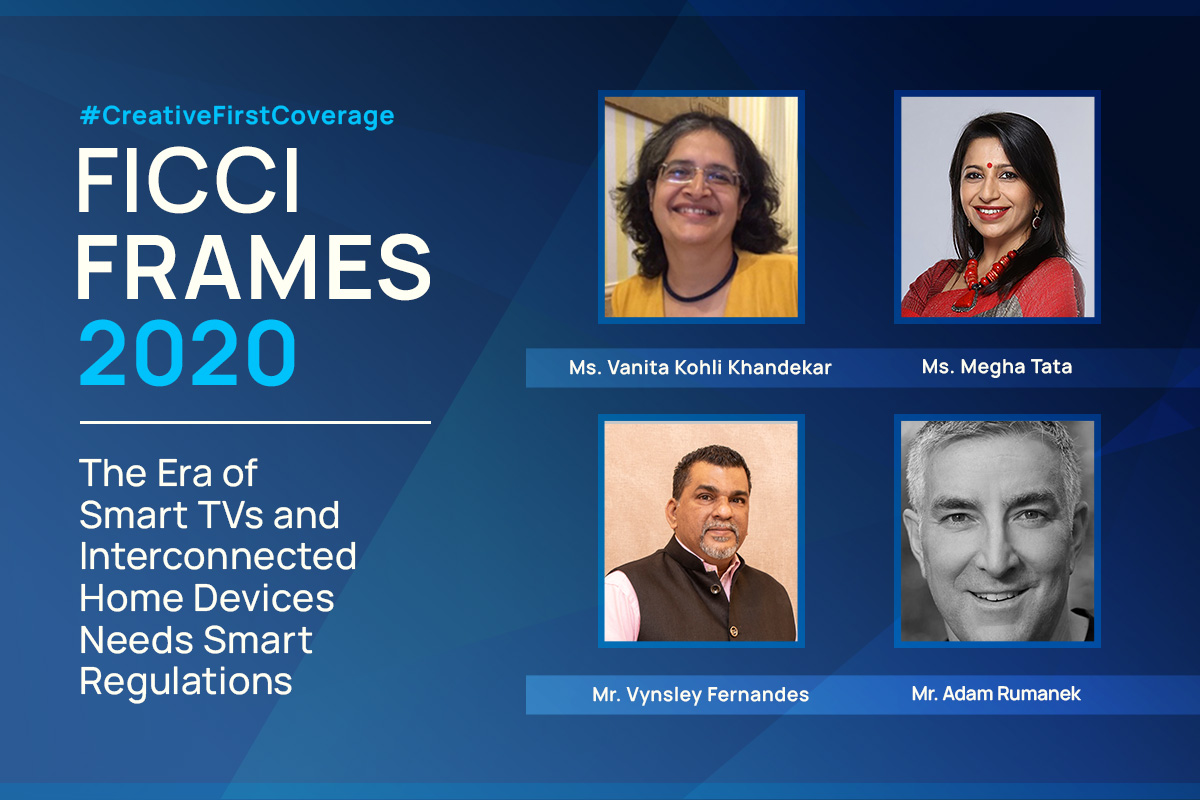
The government granted industry status to the Film sector in 2000. Back then, the overall revenue generated by the sector was USD 1.3 billion, and Indian films were largely a domestic affair. Since 2013, India has produced the highest film output globally and, in 2019, 350 Indian films were released abroad generating a total USD 332 million.
In such a scenario, the session ‘The Era of Smart TVs and Interconnected Home Devices Needs Smart Regulations’, moderated by Ms. Vanita Kohli-Khandekar, contributing editor Business Standard, focused on regulation of the M&E sector. The issues discussed included the necessity for regulation and who should regulate which aspect in the sector.
To regulate or not to regulate and what to regulate:
The panellists came to the consensus that technology will outpace regulation. On one issue, however, Adam Rumanek, Founder and CEO of Aux Mode, a digital rights management company, departed from his Indian co-panellists. His view was that some sort of regulation, such as strong measures to combat piracy, is necessary to guarantee a return on investment to content creators. While others agreed that piracy is a serious issue, they said that in India, the regulator’s obsession with pricing regulation is debilitating the industry. Megha Tata, Managing Director – South Asia, Discovery Networks, said that businesses are already struggling to keep pace with changing consumer needs and the new normal triggered by the Covid-19 pandemic.
To compound matters, they are also burdened with overreaching regulation that disrupts business models even further.
The primary objective should be to deregulate to a common minimum, according to Vynsley Fernandes, CEO, IndusInd Media and Communications Ltd. He added that the new consumer does not want to see more regulation. Further, it is “absurd” that within a household, one has to view a censored version of a show on TV, while the uncensored version is available on OTT. Avinash Pandey, CEO, ABP News Network, contextualised this in news broadcasting. He said that consumers can access content banned by regulation on WhatsApp and Twitter. Pandey suggested that regulation should accord primacy to the creative freedom of people, even as it enforces the basic minimum standards agnostic of technology.
Unsatisfactory process and outcomes:
The Indian panellists expressed their disappointment with regulatory processes and the laws policing content. The Telecommunications Regulatory Authority’s (TRAI) New Tariff Order, which ushered in content pricing and bundling, came under heavy criticism. This is over and above the maze of permission regimes that businesses have to navigate to make even the smallest change. As a result, the industry gets severely throttled, according to Ms. Tata. She emphasized that no country has prescriptive regulation on MRP of channels, broadcaster – distributor agreements and bundling. In fact, TRAI regulation runs contrary to all available evidence, she said. Ms Tata cited a survey from the Netherlands, which showed that 98 percent of TV consumers prefer channel bundles, to back her claim.
Another point of agreement among the panellists was that industry-led self-regulation should be the ‘new normal’.
Mr. Rumanek opined that other countries, too, are moving towards such a model, while Mr. Pandey cited the Broadcast Content Complaints Council and the News Broadcasting Standards Authority as exemplary models for regulation.
Key takeaways: